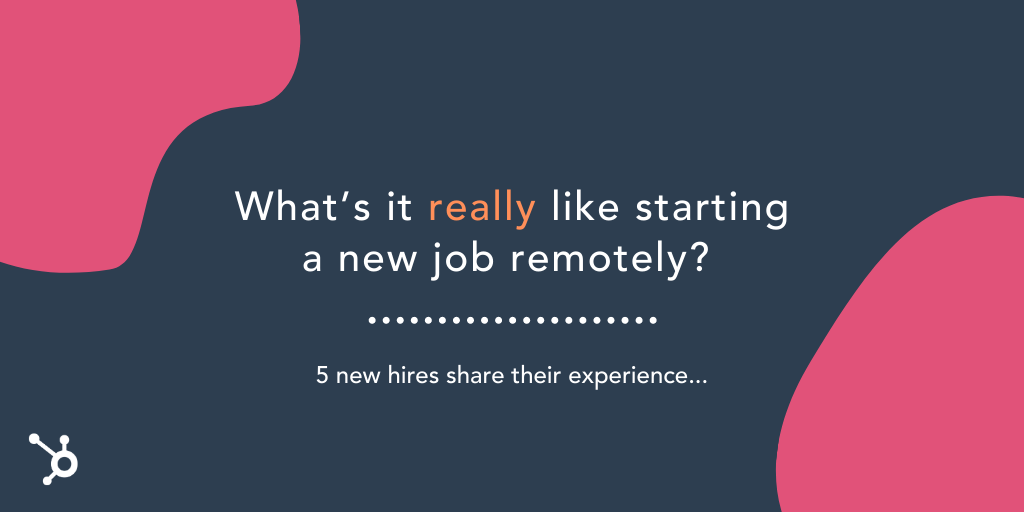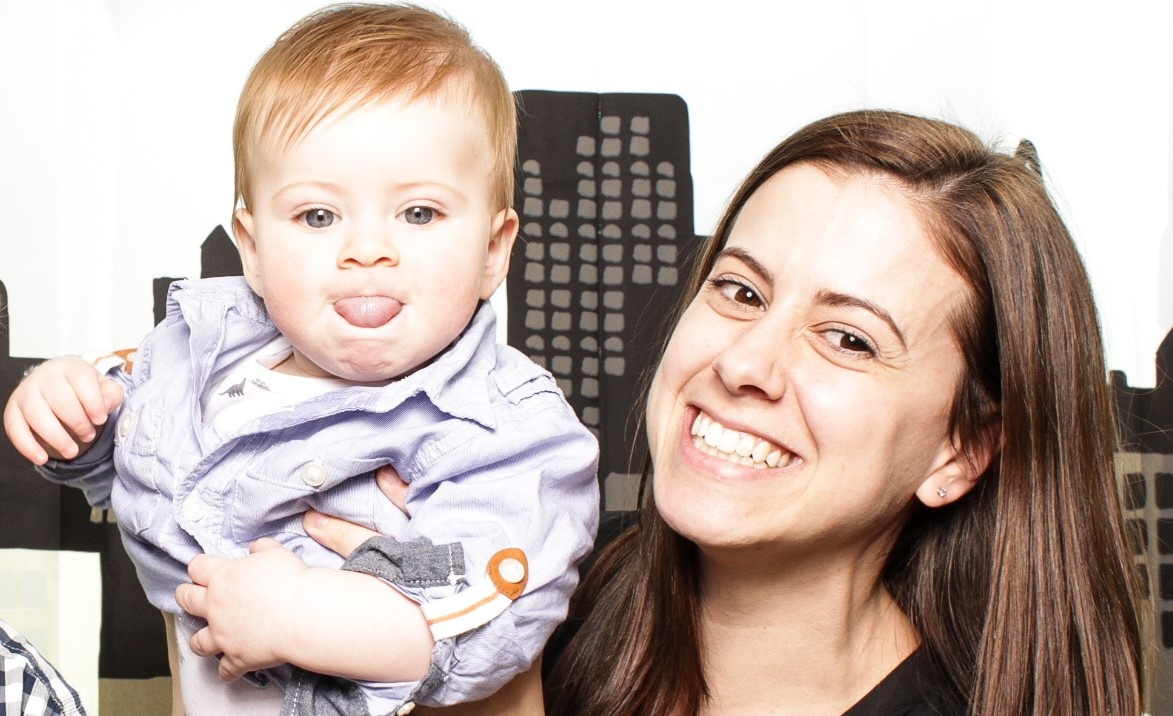For many of us, adjusting to remote work has been a learning curve. It's forced us to rethink how, when, and where we do our best work. But this isn't a 'new normal' for everyone. In 2019, Eurostat reported that 10% of professionals in the EU work remotely, which equates to about 25 million people. Inken Kuhlmann-Rhinow is one of those people.
.png)
An EMEA Marketing Director at HubSpot, Inken started working in our Dublin office, but has been working remotely from Dortmund, Germany since 2016. Managing a team across time zones and geographies, Inken has learned best practices first-hand for how to be an effective leader virtually.
Over the past few months, as HubSpot's global workforce has moved to working remotely (for now), we've looked to our full-time remote community, including leaders like Inken, to share insights and advice for adapting. Here's what she had to say about becoming a remote manager and tips for success:
How did becoming a remote manager change your leadership style?
As a remote leader, I’m much more aware of my communication style and how important it is to over-communicate across a larger team. I'm also not afraid to be transparent with my team, and I think this has really defined me as a leader.
What’s your biggest challenge as a remote leader?
Trust is paramount in building effective and productive teams, and even more critical when you're dispersed. But, it's also a challenge to build that trust when you're remote. Spending the time to make sure your team is practicing psychological safety, and has that foundation of trust allows everything else - like communication, collaboration, and performance - to fall into place.
Your team is split across two geographies and two different time zones. What does communication on your team look like?
I try to have regularly scheduled moments of communication, followed by more spontaneous ones, so that it mirrors similar in-office behaviors. My team has a virtual coffee check-in every Monday where we only talk about non-work related things and we tend to have some standing meetings, but we don’t do a daily stand up. I trust my team to work autonomously and do the right thing, so I don’t feel the need to constantly have status updates. Instead, we rely on Slack and Zoom to have quick check-ins if needed.
How do you set expectations with your team?
I think it’s really important to set clear expectations for each individual on your team, which is why every person has specific quarterly goals and we work collaboratively in order to achieve them. On top of that, it’s very important to give timely feedback and not wait for the next review to happen. This is easier said than done, but speaking from experience it really works to make sure you and your team are transparent about expectations so that you are on the same page.
How do you establish and maintain trust with your team?
I try to lead with empathy and also be transparent about when I am not having a great day, or if something happened in my personal life. I also believe in taking the extra time to get to know your team on a more personal level. Whether that’s using one-on-one meetings to talk about things happening outside of work, sharing failures, or being transparent about having an off day. It may take a bit more time and intentionality in the beginning, but it’s so worth the effort.
How do you create a strong team culture?
Culture is a team sport. So my team knows that it’s everyone’s job to contribute to creating a positive team environment. I have also learned that people really appreciate learning together. At least my team likes to do that, so I try to organize regular sessions on different topics where we do an Harvard Business School case, a session on psychological safety or something else.
As a manager, you hire new team members often. Can you share some of the tips you’ve learned around how to successfully interview remotely?
Here are a few tips I’ve learned over time:
- When interviewing remotely, try to make candidates feel comfortable and use the first five minutes to talk about something other than the role. Try to build some rapport with the candidate.
- Your advantage with remote interviews is that you can closely watch the time and make sure you finish a bit earlier to give the candidate 2-4 minutes before the next person jumps into the interview.
- Try to be as relaxed as you might be in an office setting and drink your tea or coffee. I think it is totally fine to do that to show that this is a conversation and not an interrogation as remote interviews can be super scary for applicants.
- Make sure to hand out all prep info about time-zones, the person they’re interviewing with, and technical set up ahead of time so that candidates feel comfortable and prepared.
- As the interviewer, when you’re finished with your interview, Slack the next interviewer to let them know that they can now join the meeting. This way you won’t have any awkward situations where people join your meeting and interrupt a conversation.
Have you ever had any remote work fails as a manager or as an individual contributor?
Of course! It took me a good six months to get into the rhythm of remote work and management. You need to find a healthy routine, you need breaks and to be in control of your calendar as much as possible, something that I didn’t have the hang of initially. Now, I let my team know when I’m not bookable because I’m grabbing lunch or doing a quick 30-minute workout. When working remotely, it is very important to take advantage of flexibility because otherwise you can end up working too much. You need to be confident and brave enough to do that but trust me, it will be much better for your energy level. I believe that you need a good balance to be a good manager. Humans need sleep, relaxation, family/friend time, sport and work to be the best version of themselves.
What advice would you share with new remote managers?
Here are a few things that I think are important for a new remote manager to know:
- Start with writing a “How to work with me” document. This entails what your schedule usually consists of, details about your persona (DiSC profile), details about your personality, your points of friction (things you don’t like or struggle with) and your delight moments (things you love doing at work and on a personal level). After writing this about yourself, share it with your team and ask them to create a doc with the same information. Then set up a meeting and share things you learned about yourself and others during this exercise.
- Always assume positive intent. People want to do good work and deliver results. Trust in your team, they will return it.
- Do not try to run too many meetings because you feel you’re missing out on things. If you have a knowledge gap, talk to the individual who can help, set up a quick Zoom and ask the questions.
- Don’t use weekly team meetings to have people run through a list of things they added to a doc or presentation. We start our weekly team meeting with a document where people list their projects, findings for the week, then we stay quiet and comment on other people’s items. After 5-7 minutes, we only run through things we commented on and have a discussion.
What advice would you share with remote employees around how to best communicate with their manager?
Communication is the foundation of a good remote work relationship. These are some of my top tips:
- Try to imagine that you’re in the same office and every time you would turn around and ask something, do so via Slack or Zoom. This will help you get into the rhythm of working more efficiently and spontaneously.
- Spend some time together to review your “How to work with me” doc and agree on communication styles, Slack over email, etc.
- When building a connection initially it is important to over communicate and then build trust over time.
- Don’t be afraid to say that you feel left out in certain situations or meetings if you’re one of few remote workers. We have set the rule that if there is one person who is remote, the entire meeting is remote for everybody.
Learn more about remote work opportunities at HubSpot and find out what it's like working remotely at HubSpot.
Remote Working




